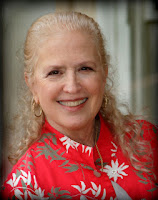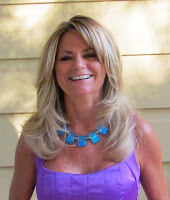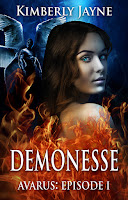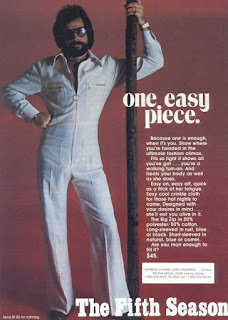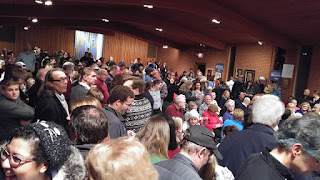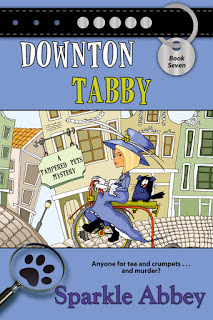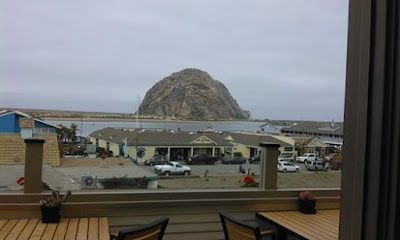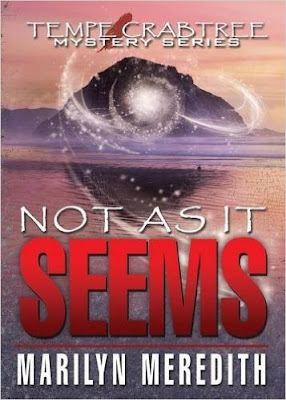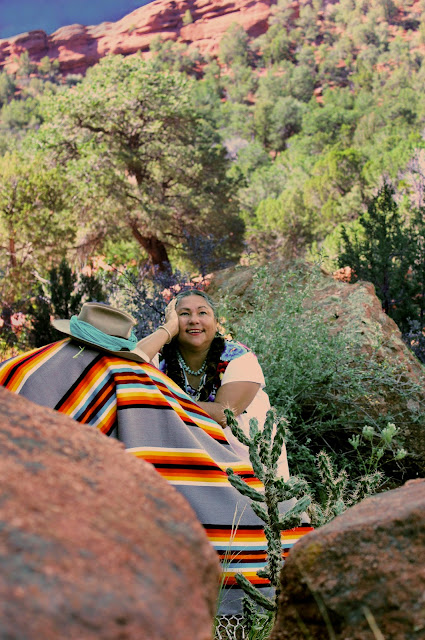 |
| Juliana at Red Canyon Falling On Churches, Colorado |
February
3, 2016
The Secrets Are
All Out Now by Juliana Aragón
Fatula
I promised my students that I would tell their story. The
secrets are all out now. In 2009 I taught teatro at Cesar Chavez Academy in
Pueblo, CO. My teatro students had been studying Los Vendidos by Luis Valdez and learning protest songs about the
Delano Grape Strike, like No Nos Moveran. They were told by the principal that their
performance at Cesar Chavez Day was cancelled. The administration was afraid my
students political performance piece might offend some guests.
My students wrote a formal complaint and walked into
the principal’s office and told her, “Why did you hire Mama Fatula to teach us Chicano
History, if you’re not going to allow us to perform teatro?” I taught my
students what I had learned from El Centro Su Teatro Chicano Cultural Center in
Denver, CO in the 90s. I taught them how to make picket signs and protest
injustice with civil disobedience. Thank you, students, for being in my corner
when my administration tossed me under the bus. I was so proud, I cried.
The next year, I taught Language Arts in my hometown,
Klanyon City. I had come full circle. I taught in the same building I had
attended in the seventies. I gave my students a writing assignment: a biography
on our President of the United States, Barack Obama. I had no idea the chaos
that would ensue.
The class divided in half right down the second row.
One side of the room of students walked out of my classroom. Needless to say,
the parents were called, the complaint was filed and administration changed my
assignment to a biography on any famous person of the students’ choice. The
tragedy is that the students who didn’t walk out; the ones who had my back and
said it was an interesting assignment were going to write the bio on President
Obama and their parents praised me for giving the assignment, but the students
caved under peer pressure and instead wrote a biography on Dr. Seuss. I love
Dr. Seuss. Who doesn’t. But come on.
The principal told me, “You grew up here. You should
know better.” I answered, “I thought all of the Klan was dead.” But now I
know. The first black President in the
U.S. is history, but in my hometown, when he was elected, the students did not
get to watch his inauguration on TV because a gun toting maniac decided to storm
the building and remove his children from school that day. The police were
called. No one was harmed. Well, not physically. Those students witnessed
racism in person and up close. I wrote a poem about it called “An Educated
Chicana.” I’d like to share it with you, but the profanity prevents me from
publishing it here.
It’s true that in my hometown, I’m known as a trouble
maker. I stick out because I’m a
feminist Chicana badass that tells the truth; we’re rare here in Klanyon City,
oops, I meant Cañon City. Por ejemplo: in 1972, I led the first walk-out at my
junior high. We were protesting for the right to wear jeans to school. (Hard to
believe, but true.) The students won the privilege to wear jeans from that day
on. We made history. I was a leader when
I didn’t even know what a leader was. I was only fourteen.
My students are now in their first year of college.
And I know my life lessons taught them more than what they could have learned
from a textbook because I taught Chicano History. I pulled a Louise. That’s
what my family calls it. My mom’s name was Louise and she was a badass, too. One
of my favorite quotes, “Well-behaved women rarely make history.”
I’ve learned so much from other writers. Much more
than I learned in the university. The master writers I’ve had the opportunity
to work with have taught me that as a writer I have a voice, something to say,
and an opportunity to speak my mind on issues that I care about. So, I offer my
readers a bit of my history, culture, language, wisdom. I am an educated Chicana and teach my
students about social justice, to be proud, stand tall, continue on to higher
education. I taught those at-risk-youth how to think globally.
I was born and raised near the Chicana neighborhood
known as Tortilla Flats. It’s where the braceros lived when they migrated here
from New Mexico to work the orchards, fields, mines, farms, and ranches in what
is infamous as Klanyon City, CO, the KKK headquarters in the 1800s.
I come from a long line of storytellers. I’ll never forget the story my father told me
about my hometown. As a child, my father and grandfather witnessed a black man
being hung in Chandler, Colorado, from an old cottonwood. The Klan was there in
their cheap sheets. Dad wanted to help
him, but my grandfather said, “There’s nothing we can do to help him, if we go
down there, they’ll hang us too.” It was
1927. My father was then ten years old.
That was my first glimpse into the racism in my
hometown. I knew we were different because we were dark skinned with dark hair,
dark eyes. Mexican Indians. My father was bullied in school for not speaking
English. His name was Julian Aragón, pronounced with the Spanish j
like Juan, Juanita, Julio, Juliana. So they changed his name to Jack.
I was told by my kindergarten teacher, “we speak
English only, therefore you cannot be called:
Juliana Aragón, you are now Julie
Ann Aragon, Jew Lee Air a Gone.” They anglicized my name. My identity, my culture and language wiped
away like dust on an old piano. It is a common story among my Chicano friends
from all over the country.
Well, all the secrets are out now. I’m teaching social justice and using my gift
of writing to tell my father’s stories, to tell the real history of my
community, not just the white history but also the history of people of color. I
haven’t forgotten them. I write their stories. I share the truth, not the
facts, but the truth. My students learned from me to write poems and stories
that they care about, and they have made me extremely proud. You can read some
of their work in the anthology I edited and published by Conundrum Press, This Is How We Poet.
I’m indigenous. I’m Chicana. I’m proud of my heritage
both the Mexican and the Indian. If you don’t know the difference between Latina, Chicana, Mestiza,
Mexica, Mexican Indian, ask me some time and I’ll spell it out for you. I’m an
Educated Chicana and I’m a teacher.



